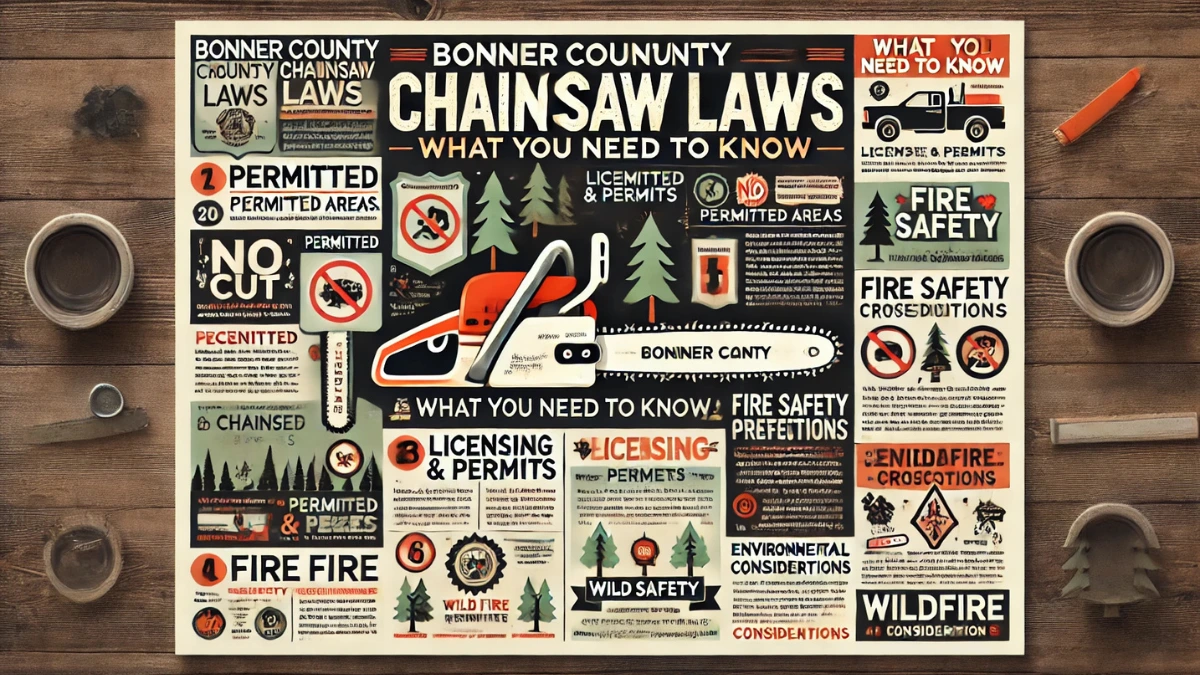LAW
The 1624 Repeal of Anti-Welsh Laws: Unraveling a Turning Point in Welsh History

In 1624, a monumental shift occurred that changed the course of Welsh history—the repeal of the oppressive anti-Welsh laws. For centuries, these laws suppressed the culture, language, and identity of the Welsh people, creating deep-rooted resentment and division. This blog explores the significance of the 1624 repeal, why these laws existed in the first place, and how their abolition marked a new era for Wales. By understanding this pivotal moment, we can appreciate the resilience of the Welsh spirit and the enduring importance of cultural freedom. Whether you’re a history buff or simply curious about Wales, this article offers insights you won’t find anywhere else.
What Were the Anti-Welsh Laws?
The anti-Welsh laws were a series of legal restrictions implemented after the Laws in Wales Acts 1535 and 1542, also known as the “Acts of Union.” These laws aimed to assimilate Wales into the Kingdom of England, primarily by:
- Suppressing the Welsh language.
- Banning Welsh people from holding public office.
- Imposing English as the sole language of legal and official proceedings.
These measures were not just administrative; they were tools of cultural domination, aiming to erase Welsh identity and force conformity to English norms.
Historical Context: Why Were These Laws Enacted?
To understand why these laws were put in place, we need to look back to the early 16th century. After years of political turmoil, the English Crown sought to stabilize and strengthen its rule. By integrating Wales into England legally, economically, and culturally, the Tudor monarchy aimed to:
- Centralize power: The Acts of Union facilitated administrative control over Wales, making governance easier for the English Crown.
- Prevent rebellion: By weakening the Welsh nobility and limiting their influence, the Crown sought to curb any potential insurrections.
- Promote economic integration: English laws ensured that Wales would adhere to the same legal and economic standards, promoting trade and cohesion within the kingdom.
However, this legal integration led to the erosion of Welsh traditions, customs, and language, creating lasting resentment.
The 1624 Repeal: What Changed?
The repeal of the anti-Welsh laws in 1624 was a landmark event, reflecting a shift in political and cultural attitudes. There are several factors that led to this change:
- Growing pressure from Welsh nobility: Welsh lords and landowners began to push back against the laws, leveraging their political influence to advocate for change.
- Cultural renaissance: The early 17th century saw a revival of Welsh literature, music, and language, which played a significant role in fostering a sense of national pride and identity.
- Changing priorities in England: Political tensions and economic challenges in England diverted attention away from strict control over Wales, creating an opportunity for policy reform.
The repeal did not instantly restore Welsh autonomy, but it marked a critical step towards recognizing and respecting Welsh cultural identity.
The Impact of the Repeal on Welsh Society
The repeal of the anti-Welsh laws had immediate and long-lasting impacts:
- Revival of the Welsh language: Without legal barriers, Welsh people could once again use their native language in public life, leading to a resurgence of Welsh literature and oral traditions.
- Increased representation: The repeal allowed Welsh individuals to participate more fully in civic life, paving the way for greater representation in local and national governance.
- Cultural pride: The restoration of cultural rights helped boost national pride, encouraging a renewed celebration of Welsh customs, festivals, and heritage.
Legacy and Modern-Day Relevance
The 1624 repeal set the stage for future cultural preservation efforts. Today, Wales is known for its vibrant culture and strong national identity, aspects that might have been lost if not for the efforts to reverse the laws that stifled them. Modern initiatives, such as promoting the Welsh language and celebrating St. David’s Day, have roots in the freedom gained in 1624.
Moreover, this history has shaped how Wales engages with cultural preservation and autonomy within the United Kingdom. Discussions on devolution and national identity today often draw from this deep well of historical experience, underscoring the ongoing importance of cultural rights and regional autonomy.
Conclusion
The 1624 repeal of anti-Welsh laws was more than a legal change—it was a cultural revolution. It marked a turning point where the people of Wales could reclaim their language, customs, and identity, setting the stage for centuries of cultural resilience. Understanding this chapter of history helps us appreciate the richness of Welsh heritage and the importance of protecting cultural diversity. By learning from the past, we can ensure that every culture, no matter how small, has the opportunity to thrive.
FAQs
What were the Laws in Wales Acts?
The Laws in Wales Acts of 1535 and 1542 were legislations that aimed to integrate Wales fully into the English legal and administrative system, effectively dissolving separate Welsh laws.
Why were anti-Welsh laws repealed in 1624?
The repeal was influenced by cultural resurgence, political advocacy from Welsh leaders, and changing priorities in England, which allowed for more cultural flexibility.
Did the repeal of the anti-Welsh laws restore complete autonomy to Wales?
No, it did not restore autonomy, but it allowed for greater cultural freedom and participation in civic life, setting a precedent for future efforts toward self-governance.
How did the repeal affect the Welsh language?
The repeal enabled the use of the Welsh language in public and official settings, leading to a revival of Welsh literature, education, and cultural expression.
Is the 1624 repeal still relevant today?
Yes, it represents a foundational moment in the preservation of Welsh culture. Contemporary efforts to promote the Welsh language and identity can trace their origins back to this historic event.
LAW
Rhode Island Motorcycle Accident Law Firm: Your Comprehensive Guide to Legal Support After a Crash

Motorcycle accidents can be devastating, often leading to serious injuries, costly medical bills, and complex legal battles. If you’re a motorcyclist in Rhode Island, understanding your legal options after an accident is crucial. This guide provides insights into how a Rhode Island motorcycle accident law firm can support you in navigating the legal system, ensuring you receive fair compensation and justice. From understanding your rights to selecting the best law firm, we cover everything you need to know. Read on to empower yourself with the knowledge to protect your interests.
Motorcycle Accidents in Rhode Island
Common Causes of Motorcycle Accidents
Motorcycle accidents can happen for various reasons, but some of the most common causes include:
- Distracted driving: Texting, phone calls, or other distractions can lead to drivers not noticing motorcyclists on the road.
- Speeding: Excessive speed reduces reaction time, increasing the risk of collisions.
- Impaired driving: Driving under the influence of alcohol or drugs can significantly impair a driver’s ability to operate their vehicle safely.
- Lane splitting: While not legal in Rhode Island, motorcyclists may engage in lane splitting, which can be dangerous and lead to accidents.
- Road hazards: Potholes, wet roads, and debris can be more hazardous for motorcycles than for cars.
Understanding Rhode Island Traffic Laws for Motorcyclists
Rhode Island has specific laws that apply to motorcyclists. Being aware of these can not only keep you safe but also strengthen your legal case if you’re involved in an accident. Key regulations include:
- Helmet requirement: All motorcyclists must wear helmets, and passengers under 21 are required to wear helmets by law.
- Motorcycle licensing: Riders must possess a valid motorcycle license or endorsement.
- Safety inspections: Motorcycles are subject to regular safety inspections to ensure they are roadworthy.
How a Rhode Island Motorcycle Accident Law Firm Can Help
Immediate Legal Support
After an accident, the priority is to get medical assistance. However, it is also important to secure legal support as soon as possible. A Rhode Island motorcycle accident law firm can help by:
- Evaluating your case: Determining whether you have grounds for a personal injury claim.
- Gathering evidence: Collecting photos, police reports, and witness statements that strengthen your case.
- Advising on insurance claims: Guiding you through the process of filing claims with your or the at-fault party’s insurance company.
Negotiating with Insurance Companies
Insurance companies often try to minimize payouts, but experienced motorcycle accident lawyers know the tactics they use and can negotiate on your behalf. They can:
- Assess the true value of your claim: Including medical expenses, lost wages, property damage, and pain and suffering.
- Prevent quick settlement traps: Ensuring you don’t accept a lowball offer from an insurance adjuster who is looking to settle quickly.
- Negotiate for maximum compensation: Leveraging evidence and legal knowledge to get the best possible settlement for you.
Representing You in Court
While many cases are settled out of court, sometimes negotiations break down. In such situations, a law firm can:
- File a lawsuit: Taking legal action if an insurance company refuses to offer fair compensation.
- Represent you in trials: Providing experienced courtroom representation to fight for your rights.
- Handle appeals: If necessary, they can also handle appeals to seek a favorable outcome.
What to Look for in a Rhode Island Motorcycle Accident Law Firm
Experience and Specialization
When choosing a law firm, ensure they specialize in motorcycle accidents and have a strong track record of success in this field. Experienced attorneys understand the nuances of motorcycle accident cases and are better equipped to handle complex legal situations.
Reputation and Client Testimonials
A law firm’s reputation can give you an idea of the quality of service you can expect. Look for firms with positive client testimonials and good reviews. Successful cases and satisfied clients are indicators of a law firm’s reliability and effectiveness.
Communication and Availability
You want an attorney who is accessible and communicates effectively. A responsive legal team ensures you are kept in the loop at all stages of your case, providing peace of mind and reducing stress during a challenging time.
Steps to Take After a Motorcycle Accident
Seek Medical Attention
Your health and safety are the top priorities. Even if you don’t feel seriously injured, see a doctor. Some injuries may not be immediately apparent but could become more serious if left untreated.
Document the Scene
Take photos of the accident scene, your injuries, and the damage to your motorcycle. This visual evidence can be crucial for building your case.
Obtain Contact Information
Get the contact information of other drivers, witnesses, and any law enforcement officers at the scene. This information is vital for your lawyer when they begin gathering evidence.
Contact a Motorcycle Accident Lawyer
The sooner you get in touch with a law firm, the better. Early legal intervention can preserve evidence, help you avoid costly mistakes, and improve your chances of receiving fair compensation.
Conclusion
Being involved in a motorcycle accident is a traumatic experience, but with the right legal support, you can navigate the complexities of insurance claims, lawsuits, and compensation. Choosing a reputable Rhode Island motorcycle accident law firm is crucial to protecting your rights and securing a fair settlement. If you or a loved one has been in a motorcycle accident, don’t hesitate to reach out to an experienced lawyer who can guide you through every step of the process.
Have you been injured in a motorcycle accident in Rhode Island? Contact our experienced legal team today for a free consultation. Let us fight for the compensation you deserve.
FAQs
What should I do immediately after a motorcycle accident?
Seek medical help, document the scene, collect contact information, and contact a motorcycle accident lawyer as soon as possible.
How much compensation can I get from a motorcycle accident claim?
The amount varies depending on factors like the severity of injuries, the extent of property damage, and the impact on your quality of life. A lawyer can give a more accurate estimate after assessing your case.
Can I file a claim if I was partially at fault for the accident?
Yes, Rhode Island follows a “comparative negligence” rule, which means you can still recover compensation even if you were partially at fault, but the amount may be reduced based on your percentage of fault.
How long do I have to file a lawsuit after a motorcycle accident in Rhode Island?
The statute of limitations in Rhode Island for personal injury cases is generally three years from the date of the accident. It’s best to consult a lawyer as soon as possible to avoid missing this deadline.
Why should I hire a specialized motorcycle accident law firm?
Specialized firms have the experience and expertise needed to handle the unique aspects of motorcycle accident cases, such as road hazards and vehicle visibility issues, which can significantly affect the outcome of your claim.
LAW
Understanding Bonner County Laws on Chainsaw Usage: What You Need to Know Before Cutting

Chainsaws are powerful tools that make cutting through wood easier, whether for clearing land, cutting firewood, or maintaining your property. However, just because you own a chainsaw doesn’t mean you can use it freely anywhere you want. Bonner County has specific laws regulating chainsaw usage, primarily to ensure safety and environmental protection. If you’re living in or planning to use a chainsaw in this area, it’s essential to know these rules to avoid legal trouble and fines.
This blog post will cover everything you need to know about Bonner County’s regulations on chainsaw usage, providing clear, helpful information to keep you informed and safe. Whether you’re a local resident or a visitor, this guide will help you understand what’s legal, what isn’t, and how to comply with local regulations.
Why Are There Chainsaw Laws?
Chainsaws can be hazardous, not just for the person using them but for anyone nearby. They can also cause significant environmental damage if misused. Bonner County, like many other regions, has implemented chainsaw regulations to:
- Ensure Public Safety: Reduce the risk of accidents and injuries.
- Protect the Environment: Prevent unnecessary tree cutting and manage deforestation.
- Control Noise Pollution: Limit the use of noisy equipment in residential areas.
- Mitigate Fire Risks: Regulate chainsaw use during high fire risk periods to avoid wildfires.
General Chainsaw Usage Guidelines
Bonner County doesn’t outright ban chainsaw use, but there are specific guidelines and restrictions:
- Permitted Areas: Chainsaw usage is generally allowed on private property, but public lands and parks may have restrictions. Check with local authorities if you plan to use a chainsaw on public lands.
- Noise Control: Using chainsaws during specific hours (typically early morning or late evening) may be restricted to minimize noise disturbances. Be mindful of these local noise ordinances.
- Fire Safety Precautions: During dry seasons, chainsaws can become a fire hazard. The county may issue temporary bans or require permits during high-risk periods.
Licensing and Permits
Before you fire up your chainsaw, make sure you understand Bonner County’s requirements for licenses and permits:
- Professional Use: If you’re using a chainsaw for business purposes, such as logging or tree removal, you will likely need a special license. This ensures that only trained and qualified individuals are operating chainsaws commercially.
- Permits for Tree Removal: Cutting down certain types of trees, especially larger ones or those on public property, may require a permit. Always check with Bonner County’s local regulations before proceeding with any tree removal.
- Fire Season Permits: During the dry season, you may need to obtain a permit to use a chainsaw. This helps the county monitor and prevent potential wildfire hazards.
Safety Tips for Using Chainsaws in Bonner County
Bonner County prioritizes safety, so it’s important to practice these safety measures:
- Wear Proper Protective Gear: Always use chainsaw-specific gloves, goggles, helmets, and steel-toe boots to protect yourself from flying debris and potential accidents.
- Ensure Proper Maintenance: Regularly check and maintain your chainsaw. A well-maintained chainsaw is less likely to malfunction, reducing the risk of accidents.
- Understand Local Weather Conditions: Avoid using chainsaws during extreme weather, as this can increase the risk of accidents and fires. Be aware of local weather advisories, especially during dry and windy conditions.
Environmental Considerations
Bonner County’s regulations also address environmental concerns. Here’s how:
- Preventing Deforestation: To protect the local ecosystem, there are restrictions on cutting down certain types of trees. Avoid cutting healthy, mature trees unless absolutely necessary.
- Wildlife Protection: Be cautious of the local wildlife. Certain areas may be off-limits to chainsaw use during breeding seasons to protect local fauna.
- Proper Disposal of Wood and Debris: Ensure that wood and debris are disposed of properly. Leaving large piles of wood can create fire hazards and attract pests.
What Happens If You Violate Chainsaw Laws?
Violating chainsaw regulations in Bonner County can lead to serious consequences, including:
- Fines: Depending on the severity of the violation, fines can range from minor penalties to substantial amounts.
- Confiscation: In severe cases, your chainsaw may be confiscated, and repeated violations could result in more stringent penalties.
- Legal Action: If your actions cause significant harm, such as starting a wildfire or damaging protected areas, you could face legal action, including criminal charges.
How to Stay Informed and Compliant
- Check Local Ordinances Regularly: Laws can change, especially around fire season. Stay updated by checking the Bonner County official website or local government offices.
- Consult Professionals: If you’re unsure about any regulations, consult with local forestry experts or legal professionals who specialize in environmental law.
- Attend Local Workshops: Some local community centers offer safety workshops that include training on the proper and legal use of chainsaws.
Conclusion
Chainsaws are versatile and efficient tools, but in Bonner County, using them comes with responsibilities. By understanding and following local laws, you can ensure that you’re operating within legal bounds, keeping yourself and the community safe. Whether you’re cutting wood for personal use or as part of a business, adhering to these regulations will help you avoid fines, legal issues, and accidents. Stay informed, stay safe, and always use your chainsaw responsibly.
If you found this guide helpful, make sure to share it with others who might benefit! Subscribe to our newsletter for more useful tips and updates on local regulations. Have questions or need more details? Drop a comment below or check out our related articles on tool safety and local environmental laws.
FAQs
Do I need a license to use a chainsaw on my own property in Bonner County?
No, you generally do not need a license for personal use on your own property, but there may be exceptions for certain types of tree cutting.
Can I use a chainsaw in Bonner County’s public parks?
It depends on the park and the activity. Some parks allow chainsaw use for maintenance or emergency purposes but prohibit it for general use. Always check local rules.
What are the penalties for violating fire season regulations?
Penalties can include fines, confiscation of equipment, and even legal action, especially if your actions result in a wildfire.
Are there specific hours when I can’t use a chainsaw in Bonner County?
Yes, there are noise ordinances that may limit chainsaw use to certain hours, especially in residential areas. Check with your local council for specific details.
Can I cut down any tree on my property with a chainsaw?
No, some trees may be protected, and cutting them without a permit could lead to fines. Always check if the tree requires a removal permit.
LAW
Kennedy Funding Lawsuit: What You Need to Know

In recent years, the Kennedy Funding lawsuit has been a topic of significant interest within the financial and real estate sectors. Whether you’re a business owner seeking financing, a legal enthusiast, or just curious about high-stakes litigation, understanding this case can offer valuable insights into the complexities of commercial lending disputes. In this blog post, we’ll dive deep into the details of the Kennedy Funding lawsuit, explore the reasons behind the case, and outline its broader implications for the industry. By the end, you’ll have a comprehensive understanding of the key issues, potential outcomes, and what this means for businesses considering alternative lending solutions.
What is the Kennedy Funding Lawsuit?
The Kennedy Funding lawsuit revolves around disputes related to lending practices, contractual obligations, and claims of breach of agreements. Kennedy Funding, a well-known player in the commercial lending sector, has faced legal challenges from clients who allege that the company engaged in unfair lending practices or failed to uphold contractual terms. As the case has unfolded, it has attracted widespread attention due to the reputations involved and the legal precedents it could set.
Background on Kennedy Funding and the Case
Who is Kennedy Funding?
Kennedy Funding is a private, direct lender specializing in providing loans to businesses, often those unable to secure financing through traditional banks. They have a history of facilitating commercial real estate deals and offer solutions for unique, sometimes high-risk situations. Their flexibility in lending criteria has made them a go-to for businesses facing challenges with conventional lenders.
The Origin of the Lawsuit
The lawsuit stems from multiple claims by clients who argue that Kennedy Funding did not adhere to their lending agreements. The claims range from allegations of hidden fees to misrepresentation of loan terms. The plaintiffs assert that these practices have led to significant financial losses, prompting them to seek legal recourse.
In response, Kennedy Funding has defended its practices, asserting that all terms were clearly laid out in contracts and that clients were made aware of the conditions before finalizing agreements. This back-and-forth has resulted in a complex legal battle that highlights the nuances of contract law and lending regulations.
Key Issues in the Lawsuit
Several core issues have emerged as focal points in the Kennedy Funding lawsuit. These include:
- Alleged Misrepresentation of Loan Terms: Clients have accused Kennedy Funding of not fully disclosing the terms of their loans. These claims suggest that crucial details, such as interest rates, repayment schedules, and penalty fees, were either misrepresented or omitted altogether.
- Breach of Contract: At the heart of the lawsuit are allegations that Kennedy Funding breached contractual agreements. Plaintiffs claim that the lender did not fulfill its obligations as outlined in signed contracts, leading to unexpected costs and legal complications.
- Hidden Fees and Charges: Some clients have highlighted unexpected fees that were not transparently communicated during the loan application process. These hidden costs, they argue, inflated the overall financial burden of the loans, making repayment more difficult.
- Regulatory Compliance: The lawsuit has raised questions about Kennedy Funding’s adherence to federal and state lending regulations. Allegations suggest that some of their practices may have skirted or outright violated industry standards, bringing regulatory bodies into the picture.
These issues underscore the need for clear, transparent communication between lenders and borrowers, as well as the importance of due diligence in reviewing loan agreements.
Implications for the Lending Industry
The Kennedy Funding lawsuit has broader implications that extend beyond the company itself. For the commercial lending sector, the case serves as a cautionary tale about the importance of transparency and ethical practices. If the plaintiffs’ claims are upheld, it could lead to tighter regulations on private lenders, requiring them to adopt more stringent standards for disclosing terms and fees.
Additionally, this case might prompt businesses to be more cautious when seeking financing from non-traditional sources. With the possibility of hidden fees and complex terms, borrowers may prefer to stick with conventional banks, despite the more rigid qualification requirements.
What This Means for Businesses Seeking Funding
For companies considering loans from private lenders like Kennedy Funding, this lawsuit emphasizes the importance of due diligence. Here are some steps businesses should take when exploring alternative lending:
- Read the Fine Print: Always review loan agreements thoroughly. Understand all terms, conditions, and potential penalties.
- Ask Questions: If anything is unclear, ask for clarification. Reputable lenders should be willing to provide straightforward answers.
- Seek Legal Advice: Consider consulting with a legal expert before signing any contracts, especially when dealing with substantial sums.
- Compare Options: Look at multiple lenders to get a sense of standard terms and conditions, ensuring that the offer you’re considering is competitive and fair.
Conclusion
The Kennedy Funding lawsuit serves as a critical reminder of the complexities and risks involved in commercial lending. While private lenders can offer flexibility that traditional banks may not, borrowers must approach these agreements with caution and clarity. For businesses, the best defense is a proactive approach—thoroughly vetting potential lenders, understanding all terms, and seeking professional advice when needed.
If you’re exploring financing options for your business, check out our guide to choosing the best private lender or contact us for personalized advice. Don’t let hidden fees catch you off guard; be informed, prepared, and in control of your financial future.
FAQs
Why was Kennedy Funding sued?
Kennedy Funding is facing legal action from clients alleging misrepresentation of loan terms, hidden fees, and breach of contract.
How does this lawsuit affect other private lenders?
If the lawsuit results in tighter regulations, private lenders may need to adopt more transparent practices to avoid similar legal issues.
Can businesses still trust private lenders after this case?
Yes, but it underscores the importance of conducting due diligence and ensuring all terms are clearly understood before entering into agreements.
What are hidden fees, and how can they impact a loan?
Hidden fees are charges not explicitly disclosed upfront, which can significantly increase the cost of a loan. Borrowers should always seek full transparency.
Will this lawsuit impact Kennedy Funding’s ability to lend?
Depending on the outcome, Kennedy Funding might face regulatory scrutiny or financial penalties, potentially affecting its business operations.
-

 EDUCATION2 weeks ago
EDUCATION2 weeks agoNicky Doe Kiko: The Visionary Redefining Creative Expression
-

 EDUCATION2 weeks ago
EDUCATION2 weeks agoCollice61: The Future of Online Storytelling and Why It Matters
-

 BUSINESS1 week ago
BUSINESS1 week agoFintechZoom.com DAX40 Today: Navigating the Dynamic World of Finance
-

 BUSINESS2 weeks ago
BUSINESS2 weeks agoAWT69X: Unveiling the Features and Benefits of This Game-Changing Device
-

 EDUCATION1 week ago
EDUCATION1 week agoDiscovering Anna Klinpap: A Visionary in the World of Creativity
-

 GENERAL2 weeks ago
GENERAL2 weeks agoPrince Narula’s Digital Journey with PayPal: How It’s Fueling His Brand Success
-

 BUSINESS6 days ago
BUSINESS6 days agoEverything You Knew About SongOfTruth.org Blog: Complete Guide
-

 GENERAL2 weeks ago
GENERAL2 weeks agoDiscover the ://Vital-Mag.Net Blog: Where Content Meets Innovation and Inspiration





